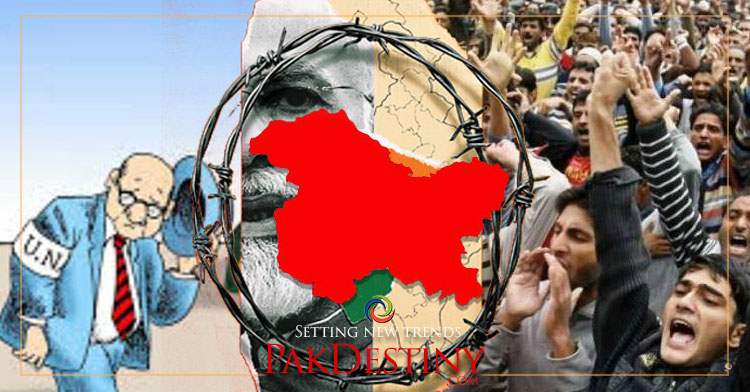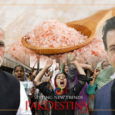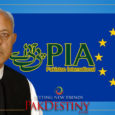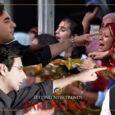
By Sarvat Hossein
On 5th August 2019, the people of Kashmir woke up to their worst nightmare, as Indian Prime Minister Narendra Modi announced the abrogation of Articles 370 & 35A.
These guaranteed the semi-autonomous status of and exclusive land rights for Kashmir. This action by the Indian government revoked the special status of Jammu and Kashmir. Let us not forget that the abrogation of Article 370, done in the garb of uniting and strengthening the “territorial integrity of India” had been appearing in the BJP’s election manifestos for several years.
The Indian government have since continued with their brutality and imposed severe restrictions on foreign journalists who report from Kashmir. On the 3rd October 2019, the journalists decided to act against Indian government’s decision and staged a sit-in protest against the communications blackout and described the blockade of the internet and mobile phones as a ‘gag’.
The Modi government, with these restrictions in place, also robbed Kashmiris of their right to tell the world of their plight; it detained their leaders and whisked away their sons to still unknown prisons. Despite the crippling lockdown in Kashmir, the world appears to have been silently observing the bloodshed in Kashmir.
The history of Kashmir has been written ‘with Kashmiri blood’, as someone might say. George Soros, a billionaire American investor, raised the issue of Kashmir at the World Economic Forum 2020 in Davos: “The biggest & most frightening setback came to India when a democratically elected Narendra Modi started creating a Hindu nationalist state, imposing punitive measures on Kashmir, which is a semi- autonomous ‘Muslim region’.
Millions of Muslims have been threatened with being deprived of their citizenship. The Kashmir issue has been trending in the media in Pakistan.
M. Inayat Ullah Kamran tweeted: “If Pakistan occupies any part of India, will this be the attitude of United Nations, the United States and the international community?”
Seventy-one years ago, the United Nations promised the people of the strife-torn valley their right to self-determination. This promise remains unfulfilled and clearly, the question is WHY? The United Nations and the international community must pay serious attention to the torture and humiliating treatment the people of Kashmir are going through during this Indian curfew on Kashmir.
The world has observed more than 187 days of a unilaterally imposed curfew in Kashmir. Why is the world’s silence so loud? This is a million-dollar question.







